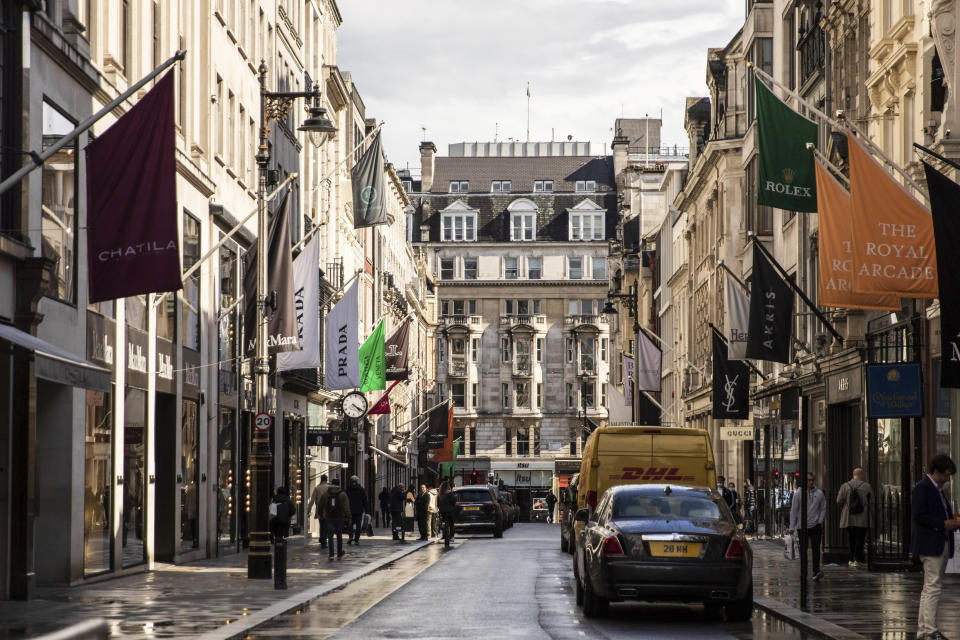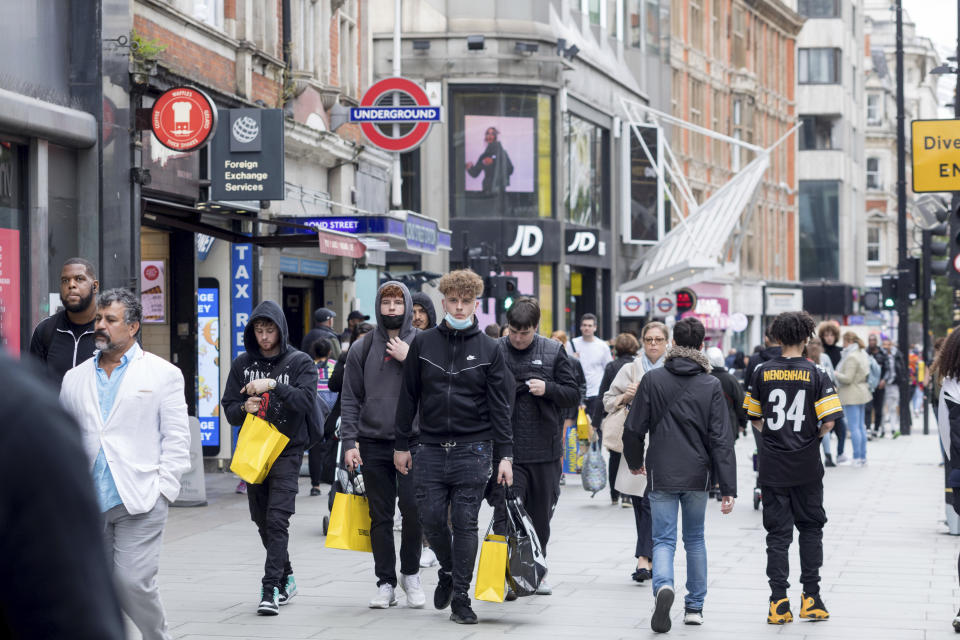London’s West End to Get 5 Billion Pound Upgrade in Next 5 Years

LONDON — The U.K. capital’s shopping experience is about to receive a massive upgrade to offset the damage wrought by COVID-19.
The New West End Company, which represents some 600 retail, restaurant, hotel and property owners in central London’s core shopping areas anchored by Bond, Oxford and Regent streets, on Friday unveiled details regarding a 5 billion pound, or $6.74 billion, capital investment into London’s famed West End over the next five years.
More from WWD
The planned investment is spread across 22 existing and new West End developments and more than 220 million pounds will be spent on open public space in the area.
To stay competitive with its global counterparts, developments will focus on providing a more diversified and immersive experience. The company said some 76 percent of the West End developments listed will be mixed use.
Two examples of the trend are the plans to turn Cavendish Square into a health and well-being destination, as well as the almost completed Outernet London on top of the Tottenham Court Road station. Including a 2,000 capacity music venue, a gallery, broadcasting and media facilities, a hotel, bars and restaurants, the mixed-used development is branded as one of “the world’s most advanced immersive media, entertainment and culture districts.”

Sipa USA via AP
James Raynor, chief executive officer of Grosvenor Britain & Ireland, which owns and manages the London Estate in Mayfair and Belgravia on behalf of its owner the Duke of Westminster, said “to secure the West End’s future we need to think bigger and bolder. Only continued investment in the evolution of the place and political support to entice back international visitors will see it able to contribute to the U.K. economy as it has in past years.”
Grosvenor’s development pipeline alone represents 1 billion pounds of future investment in the area. The group plans to redesign the Grosvenor Square and the South Molton Street Triangle, where Browns Fashion used to be and to reestablish these areas as destinations for climate-conscious and experience-driven consumers.
With the Elizabeth Line expected to be finally opened next year, the company said the area is set to benefit from a group of domestic consumers looking to spend money on premium experiences. But it also warned that the area won’t achieve its goal to deliver 10 billion pounds in annual turnover unless international tourists reach 200 million a year.
The company also said the West End is at “a significant disadvantage” compared with other international shopping destinations, such as Paris, which offers visitors preferable visa terms. Coupled with the eradication of tax-free shopping in the U.K., it worried that London is becoming much less appealing to the high net worth shoppers, diners, and holiday makers.

Sipa USA via AP
Jace Tyrell, CEO of New West End Company, said: “London’s West End has long held a place as one of the globe’s leading commercial hubs, but this unprecedented level of billions in capital investment will cement our spot as the most iconic and diverse consumer district in the world. As COVID-19 restrictions ease, we are now looking ahead to a high street that aligns with our 21st-century customers.”
“With support from the government, we need to make the West End as attractive as possible to both domestic and international visitors, showing them why London is the place to shop, dine, explore and experience over alternatives such as Paris or Milan. This means exploring a simplified visa process to entice overseas visitors back to British shores,” he added.
Rachael Robathan, leader of Westminster City Council, said on top of doing everything it can to get people back into central London, it will also renew its call to the central government for an online sales tax to ensure internet giants don’t have an unfair advantage over the West End’s brick-and-mortar retailers since the economy of the West End generates 72 billion pounds a year and is responsible for one in eight jobs in the capital.
Sign up for WWD's Newsletter. For the latest news, follow us on Twitter, Facebook, and Instagram.

